Sudan:
A country in crisis
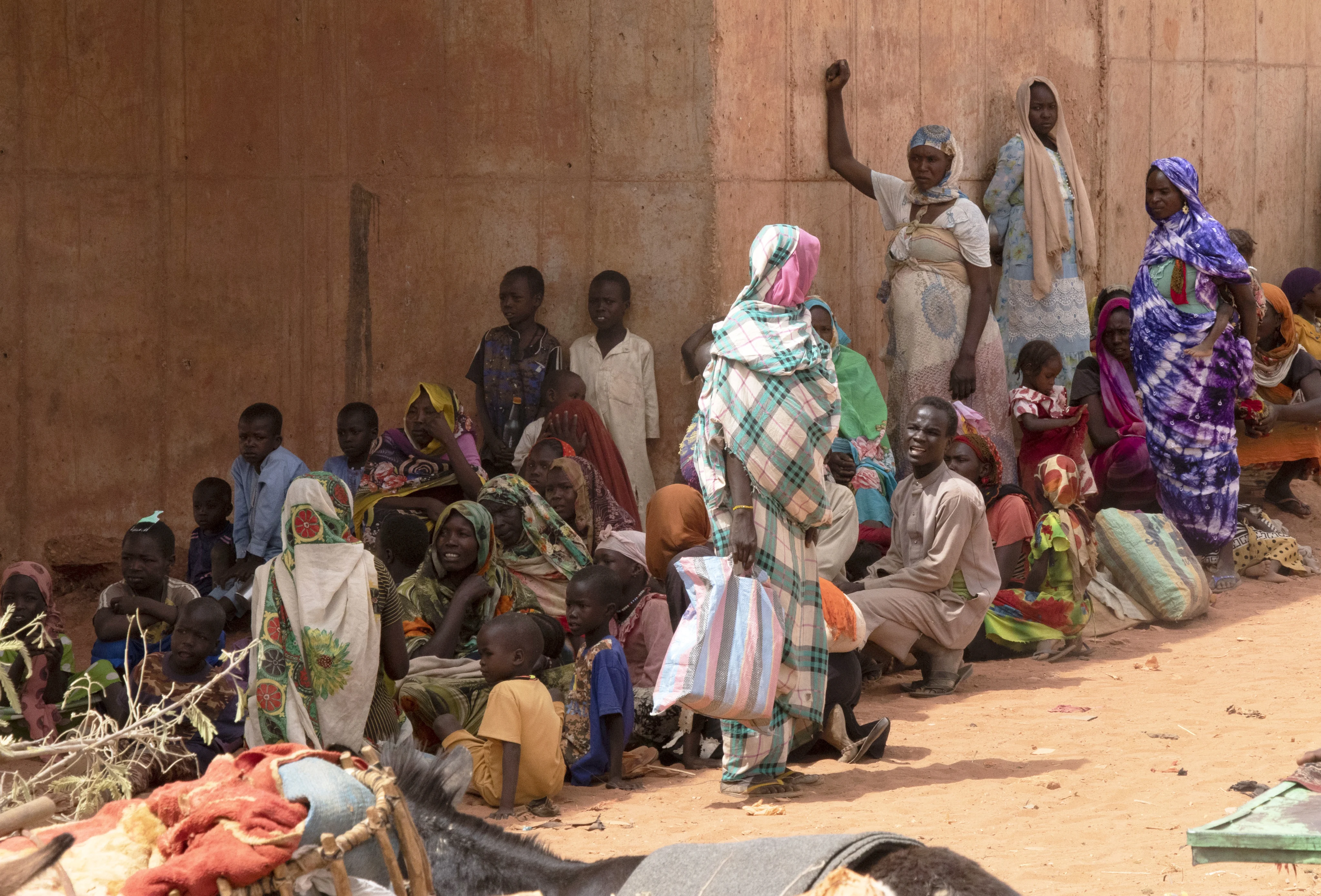
25.6 million people – close to Australia’s entire population – are currently facing crisis or worse levels of hunger in Sudan, according to the latest IPC report released in June 2024. These new figures signal a rapid deterioration of the country’s food security situation since the last report in December 2023.
755,000 people are already experiencing famine in Greater Darfur, Greater Kordofan, Blue Nile camp, Al Jazirah, and Khartoum, where the level of food insecurity is considered catastrophic (IPC Phase 5).
Famine is also projected to occur in nine states, and 15 months since the outbreak of conflict, the delivery of aid is still being severely constrained. Violence has disrupted supply chains, with 90 percent of factories destroyed or ceasing production, and in the first half of 2024, Sudan's inflation rate soared to 136.67%, making food prices even more inaccessible.
July marks the beginning of the rainy season in Sudan, adding another challenge, and the deluge has already damaged shelters, made roads unusable, and will put millions at risk of water-borne diseases across large areas of the country.
With more than 10 million people displaced inside and outside of Sudan, the UN has previously warned that millions are on the brink of famine, and the country is on course to becoming the world’s worst hunger crisis.
Pervasive conflict and insecurity have given rise to a complex food crisis that continues to impact the lives of millions of people due to restricted movements, disrupted markets and basic services, hampered agricultural production and livelihoods, and curtailed humanitarian access.”
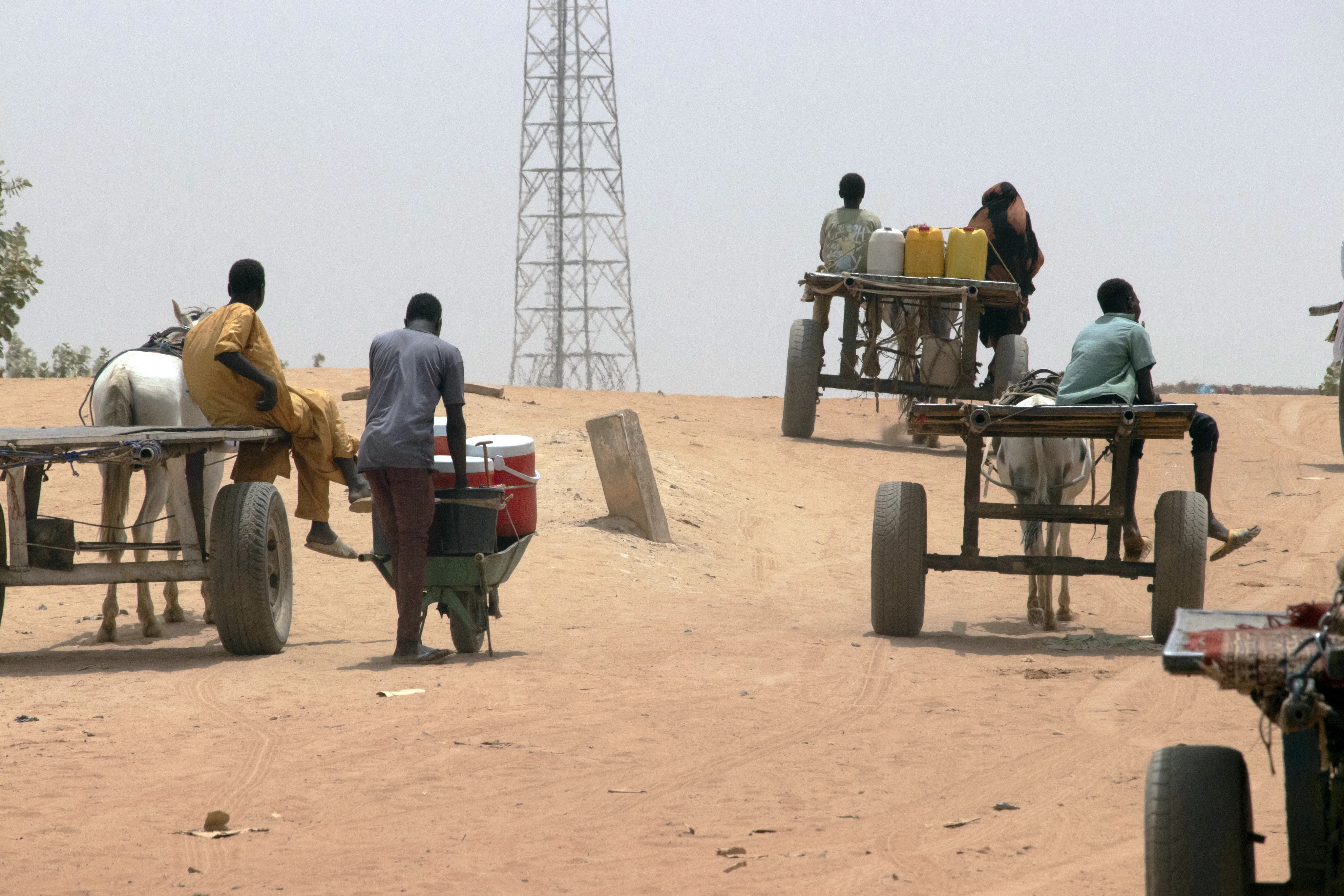
What is the IPC?
IPC stand for Integrated Food Security Phase Classification.
The IPC partnership is the global authority on food security and nutrition analysis, composed of United Nations agencies, NGOs, technical agencies and regional bodies.
Using its globally recognised scale to classify food and nutrition crises, the most recent IPC report found that 25.6 million people across Sudan are likely to experience high levels of acute food insecurity (IPC phase 3 or above) between June and September this year.
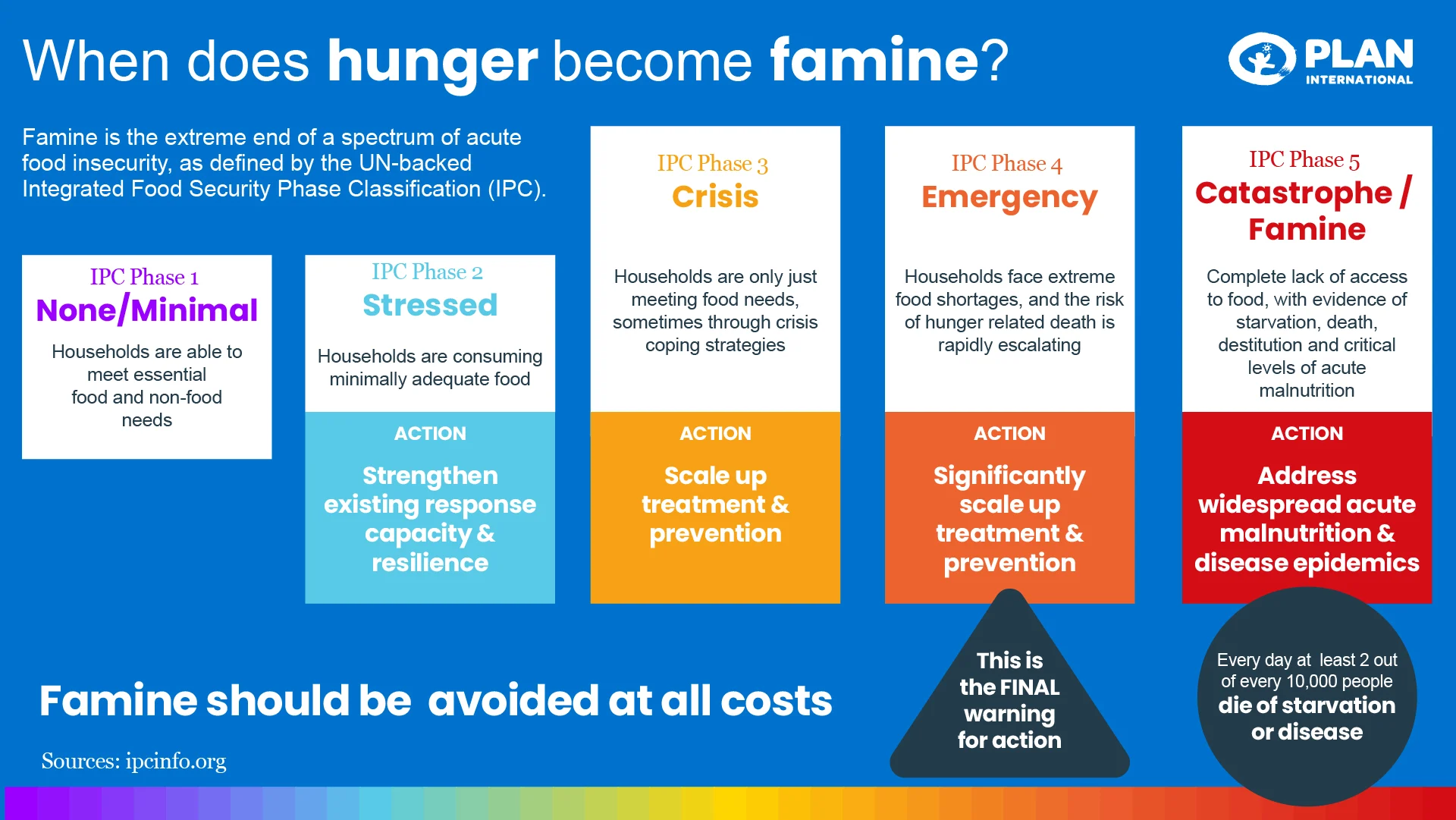
This imminent famine is man-made, conflict induced but most of all, preventable.
Earlier this year, together with the CEOs of leading humanitarian INGOs operating in Sudan, Plan International called for united diplomatic efforts and for States to prioritise finding a solution that brings an end to the conflict and sustainable peace for the people of Sudan.
Plan International Australia Program Manager Sara Sinada recently spoke to ABC Radio National about the crisis and its impacts, and you can listen here:
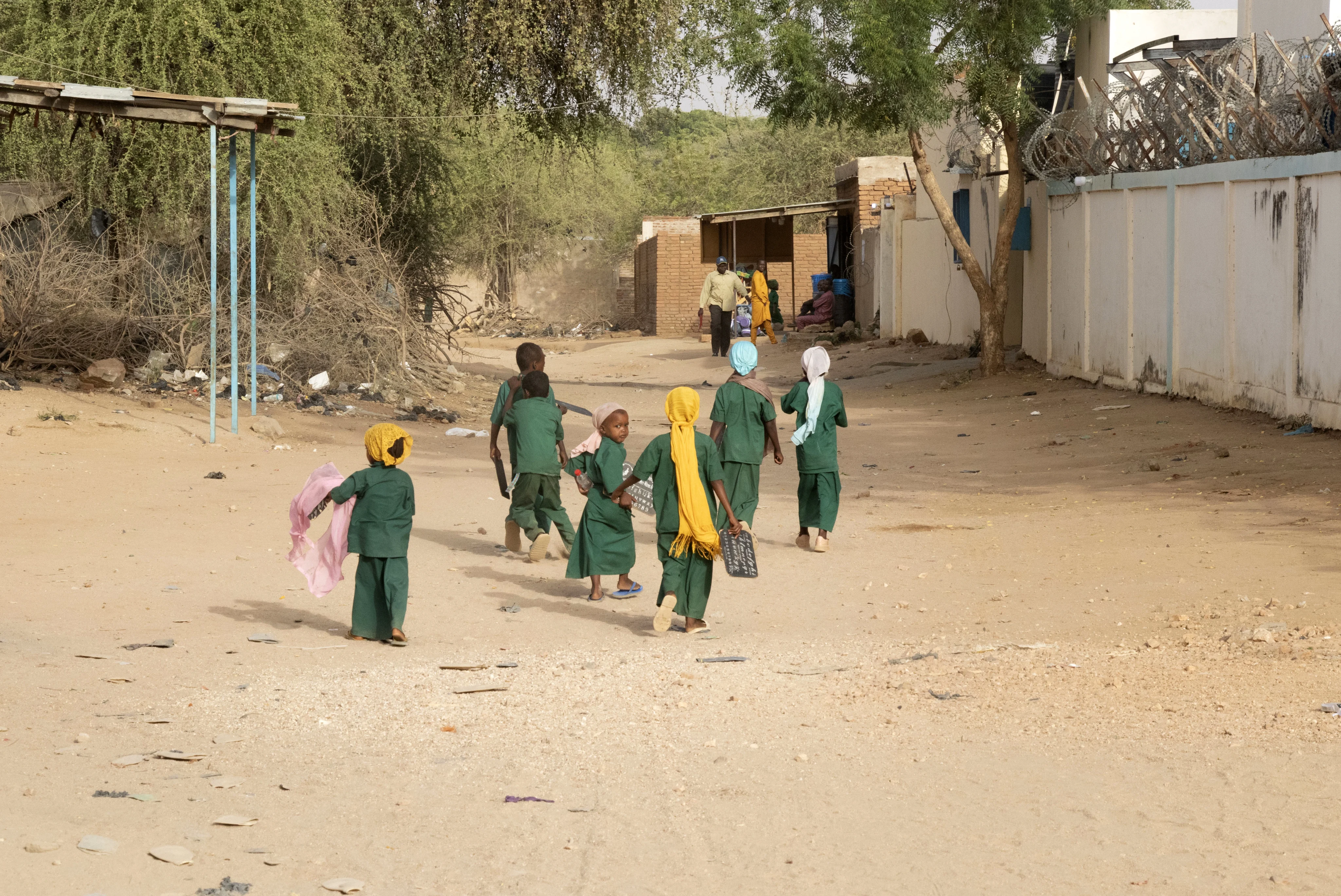
More than a hunger crisis
More urgently than ever before, action is needed to reach children with life-saving support before it’s too late.
In addition to hunger, child protection is also an issue in Sudan and neighbouring countries. When food is scarce and families are forced to flee their homes, children, especially girls, are often at greater risk of being taken out of school and facing sexual and gender-based violence, trafficking and child marriage.
In Khartoum, Sudan's capital, a recent report by Human Rights Watch found that women and girls, aged between 9 and 60, have been subjected to widespread sexual violence, including rape and gang rape, and men and boys have also been victims of sexual violence.
There have also been widespread reports of forced and child marriage across the country and The Guardian recently reported that more than two dozen women caught in the crossfire in Omdurman have been forced to have sex with soldiers in exchange for food.
The victims, and the millions of children and adults bearing witness to the horrors of this violent conflict, are in great need of psychosocial support to deal with the heavy toll that this kind of exposure has on mental health.
“Food is needed, nutrition services are needed, medical care is needed but equally it is important to address the invisible needs which often are left out in a humanitarian crisis, such as the emotional care and support for children who have witnessed the horrible things back at home or during their journey over the last 13 months.”
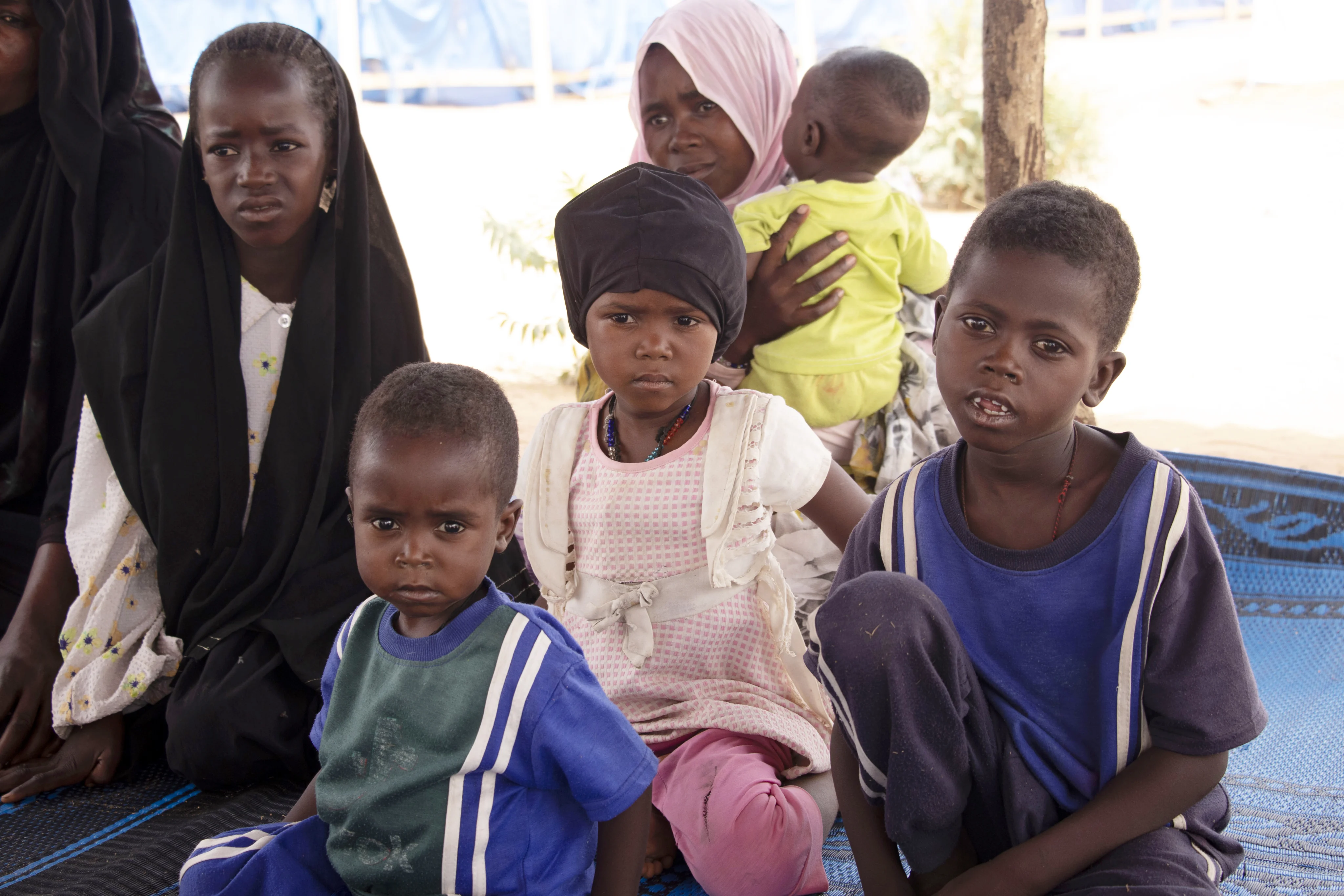
Through learning spaces, Plan is offering safe places for children to continue their education.
More than a year after the outbreak of conflict in Sudan, thousands of refugees continue to leave the country, fleeing to neighbouring countries for safety. Over 600,000 Sudanese refugees have crossed the border into Chad since April. The new arrivals, mostly women and children, often arrive in poor health, with only the clothes on their backs and deeply traumatised from the impact of war.
Kaoussar, 16, is from Geneina, a town in West Darfur. When the fighting started, she and her family fled their home and sought refuge in a nearby camp. Soon after, the camp was attacked. "We ran away. I was with my grandmother, my mother, my aunt, my two brothers, my father and many other people. We all left on the same day, at the same time, but we didn't arrive together.”
In all the confusion, Kaoussar was separated from some of her family members. "I didn't know where we were going, all I knew was that I had to follow the group of people I was with. My father and my two brothers disappeared. We were attacked several times on our way here.”
During one of these attacks, Kaoussar's mother was killed. Distraught, she refused to leave her mother's side. "I wanted to stay with her, but my grandmother and aunt dragged me away," she says.
More trauma was to come when her aunt, who was heavily pregnant, went into labour on the side of the road. "After many hours of running and walking, my aunt gave birth in the bushes with the help of my grandmother and the other women who were with us. We could still hear the gunfire.”
After three days, what was left of Kaoussar's family - her grandmother, aunt and newborn baby - crossed the border into Chad and were taken to a transit centre before being transferred to a refugee camp in Ourang.
Located on the border between Chad and Sudan, the camp in Ourang was set up to accommodate the large influx of refugees from Sudan. The makeshift settlements, little more than collections of tarpaulin tents, are home to mostly women and children. Access to clean water, food and sanitation is severely limited and it's a daily struggle for those who have left almost everything behind.
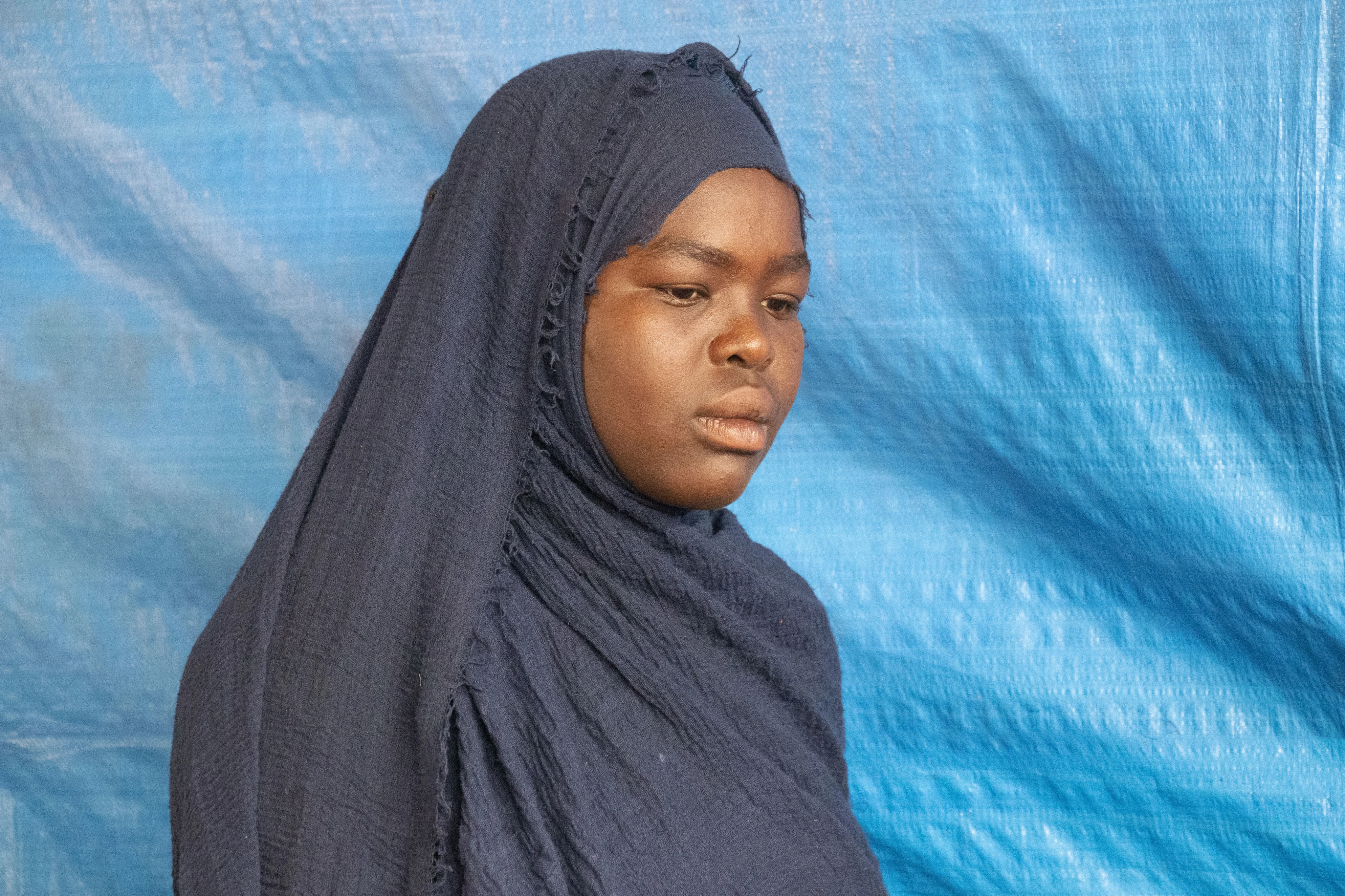
How we’re responding:
Plan International is working with our local partner, Agence de Développement Economique et Social (ADES), to provide education and child protection services to children and their families living in the camp. We have set up a temporary learning space where children can study in safety and socialise with their friends.
Kaoussar started attending the temporary learning space in February 2024, which she says has helped her recover from the pain of leaving her home and losing most of her family. "I like coming to school because I do a lot of activities with my teachers and classmates. It keeps me busy and when I get home I do my homework.”
In Darfur, discrimination and cultural traditions prevent many girls from attending school. Girls are usually expected to work in the home and look after other children, and are sometimes forced into early marriage. Plan International is working to highlight the importance of girls' education, encouraging all girls in the camps to enrol at the temporary learning space where they can learn, often for the first time, and make friends with other children in the camp.
"I used to have friends in Sudan, very good friends,” says Kaoussar, “but I don't know where they are now. The war has separated us. I have made some new friends here with whom I play and study. My favourite subject is French. I like French because it helps me to communicate with other people who speak French. I am much happier now that I can go to school. It makes me forget all the bad things I have seen in my country.”
Although she is now more settled in her new life, Kaoussar can't help but dwell on the past and often wonders where the rest of her family are. "Sometimes I cry when I think of my family, of my mother. What hurts me most is not my mother's death or my father's disappearance, but the fact that my whole family has gone and left me alone. I want to be where they are. But my grandmother, my aunt and my new school friends are here with me. I wish the war in my country would stop so we could go home.”
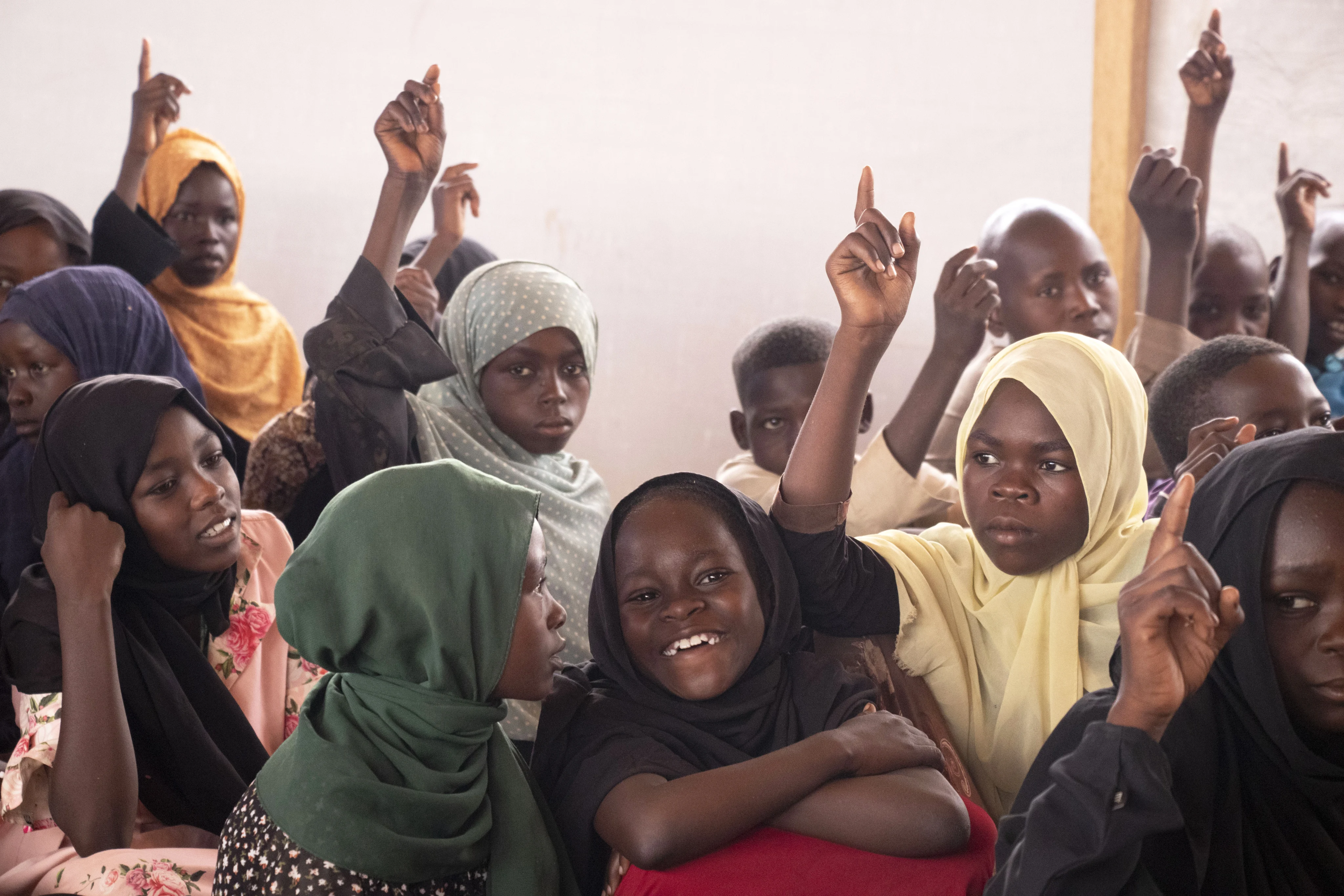
How you can help:
Against overwhelming odds and growing insecurity, isolation, and most of all putting aside their own person challenges and difficulties, our colleagues across Sudan and in neighbouring countries are continuing to provide life sustaining needs to the millions of children and families who have been affected.
Plan International is working tirelessly with local partners to alleviate the immediate and long-term effects of this crisis and as of June 2024, we have already reached 328,773 people.
From providing shelter, food and clean water to offering crucial medical aid, education, psychosocial support and cash assistance, we are committed to supporting children and their families through this crisis and your donation today can help us scale up our emergency response.

